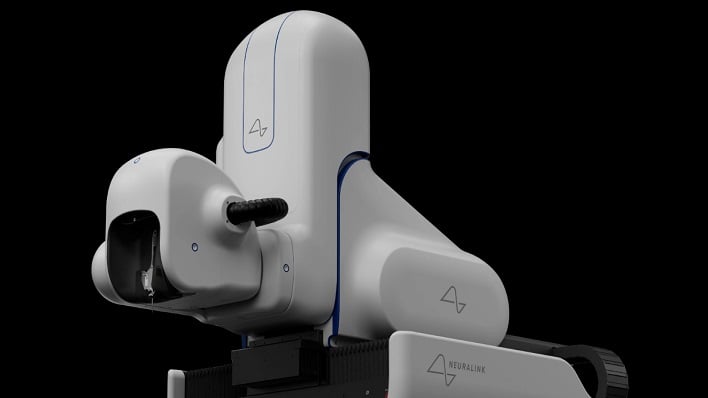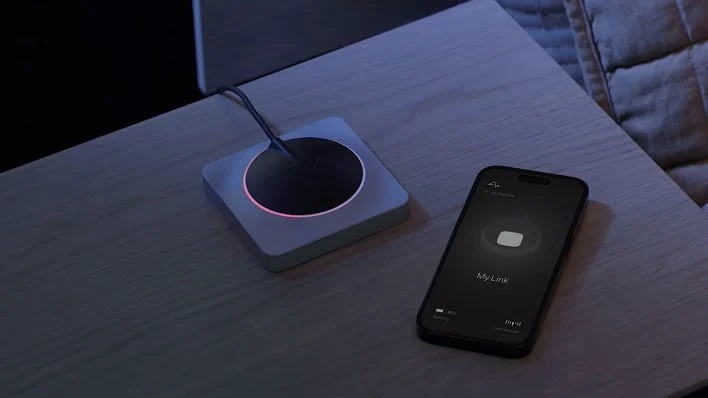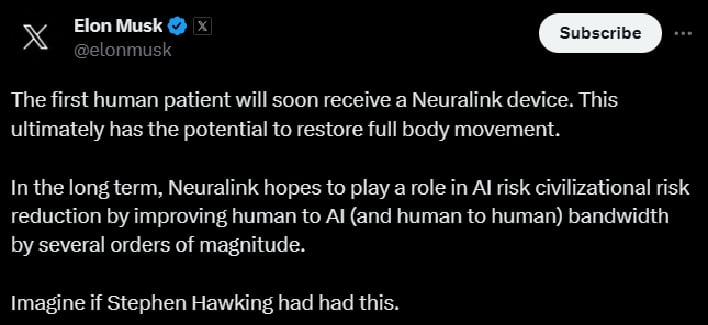Musk's Neuralink Recruiting For First Human Brain Chip Implants, What Could Go Wrong?

The mission of Neuralink is to create a generalized brain interface that will restore autonomy to a patient with unmet needs today and unlock human potential for tomorrow. In May of this year, the company received FDA approval to move its testing on animals to testing on human patients. Now, the company has received approval from the independent institutional review board and its first hospital site to begin recruiting human patients for clinical trials.
Musk tweeted about the news, "The first human patient will soon receive a Neuralink device. This ultimately has the potential to restore full body movement." He concluded, "Imagine if Stephen Hawking had had this."
The N1 implant, which is powered by a small battery charged wirelessly from the outside via an inductive charger, will be implanted through a surgical robot with threads so fine that they cannot be inserted by the human hand, according to the company. R1's head contains the optics and sensors of 5 camera systems and the optics for an optical coherence (OCT) system. The needle it uses (said to be thinner than a human hair) grasps, inserts, and releases the threads.
Those chosen to participate in the trials will have the R1 Robot surgically place the N1 Implant in a region of the brain that controls movement intention. They will then be asked to use the N1 Implant and the N1 User App to control a computer and provide feedback about the system.

The company says it cannot accept individuals with an active implanted device, such as a pacemaker or deep brain stimulator. They also cannot have a history of seizures or require ongoing MRIs for an ongoing medical condition. Potential candidates can also not be receiving transcranial magnetic stimulation (TMS) treatment.
Another factor for potential participants to consider will be the time needed to complete the trial. Neuralink says it will take approximately 6 years to complete and will require regular follow-ups with its team of experts to monitor progress and ensure the Neuralink BCI remains in good working order. Neuralink adds that participants will be compensated for study-related costs, such as travel expenses to and from the study site.
Anyone who believes they, or someone they know, may be eligible for the upcoming trials must visit the Neuralink website and join its Patient Registry for consideration.


